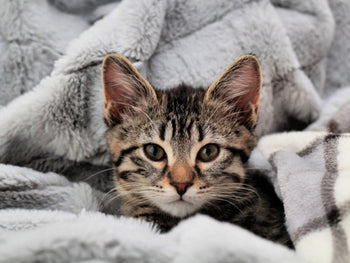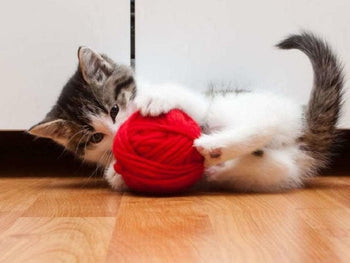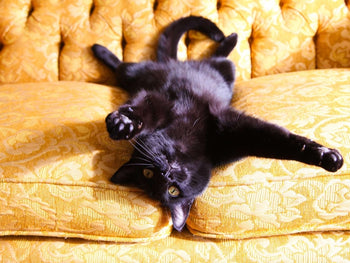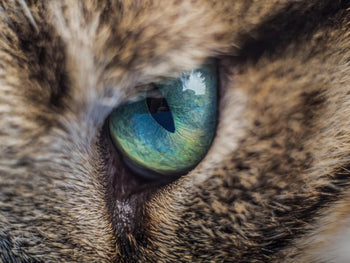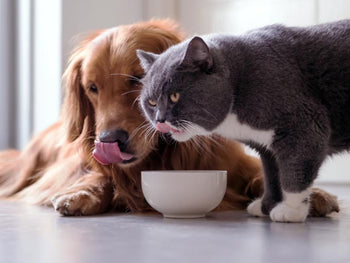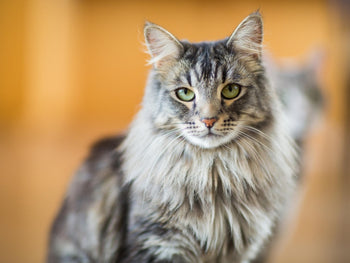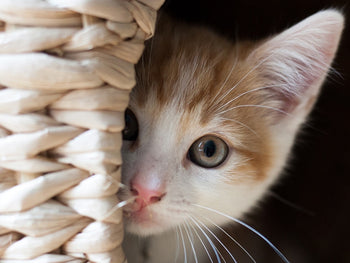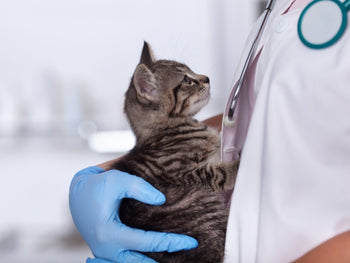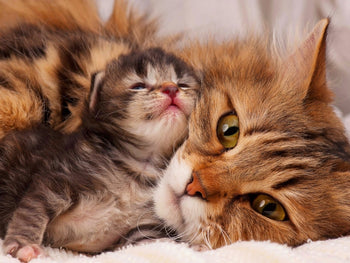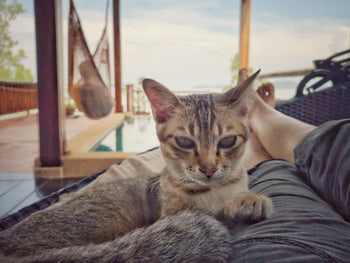Young kittens could not defecate by themselves. So it's essential that people know how to stimulate a kitten to poop while looking after orphaned kittens.

Around three weeks after being born, kittens would learn how to eliminate on their own but before that, they require assistance to defecate and urinate. Generally speaking, without outside encouragement, young kittens could not get rid of the body wastes. Most of the time, the mother cat should be the one that assists her kittens by licking their bottom. That being said, if a kitten happens to be an orphan then it's going to be pretty much helpless. Therefore, if you recently adopted an orphaned kitten, one of the first things you need to learn is how to stimulate a kitten to poop.
You really need some advice about getting kittens to poop? If that is the case, this article is for you. Check out the following information in order to see what experts have to say regarding the excretion in kittens and how to assist the felines.
An Explanation Of The Mechanism

Before we actually get to how to stimulate a kitten to poop, it's a good idea to know why kittens need encouragement to defecate. People have a lot of speculations but one of the most popular theories nowadays is that it's a defensive mechanism brought forward by evolution.
In the wild, cats have to face a multitude of predators which forces them to do their best to leave no trace behind, especially wastes. Adult cats would answer the call of nature then proceed to use available materials in the vicinity to bury everything. In the case of kittens, by letting the mother cat control the time and place they could eliminate, the odds of survival noticeably increase. Still, while such a mechanism works out perfectly in wild, it tends to give first-time cat parents a headache as they must know how to stimulate a kitten to poop.
Check us out for various astonishing cat tips & facts!
Stimulating Bowel Movements In Kittens: A Step-By-Step Guide

-
Step 1: Get Some Clean Cloths
To help your fluffy friend excrete, it's of utmost importance that you prepare a few pieces of clean cloths. Because kittens tend to have sensitive skin, refrain from using heavy paper towels here so you don't cause irritation. In addition to that, you need to prioritize light-colored cloths to facilitate the detection of pees as well as poops. Lots of pet owners suggest soaking the cloths in warm water but that is unnecessary if you use soft cloths.
-
Step 2: Position The Kitten For Stimulation
Cat parents could stimulate the kittens in a variety of positions: some like to set the felines upright while others turn them on their back. You should pick the position that makes you as well as your furball feel comfortable. During the entire process, you have to hold your kitten firmly with one hand and stimulate it with the other. The ideal time for stimulation in most of the cases is shortly after feeding time. As a precaution, consider performing the stimulation in places that permit easy cleaning if things ever get out of hand.
-
Step 3: Stimulate The Kitten
Wrap a cloth around your hand and rub it on the rear of your fluffy friend in a circular fashion. Inspect the cloth now and then to see if the pet is letting out urine. Once your kitten releases pee, keep messaging it until the flow come to a halt. At that point, stop and check to see if your furball is about to poop. In case it seems that the kitten is pushing, continue stimulating the anal region. Assuming that everything proceeds smoothly, kittens would urinate and defecate within 60 seconds under constant stimulation.
-
Step 4: Clean Up The Mess
After the kittens manage to empty their wastes into the cloth, cat parents need to use fresh cloths to wipe clean the pets then return them to the holding areas. Next, you must think about the dirtied cloths: if the cloths happen to be one-time use, dispose of them. On the other hand, if you intend to reuse the cloths in future stimulation, put them into the washing machine along with detergent and bleach. Last but not least, wash your hands thoroughly using soaps to get rid of possible traits of urine and poop.
Essential Issues While Stimulating Kittens

Knowing how to stimulate a kitten to poop is nice and all but aside from the procedure, you also need to consider other associated issues.
-
The Characteristics Of The Wastes
In healthy kittens, pees should have light/yellow colors while excretes must be brown and feature a toothpaste-like consistency. If you see something different, it's strongly recommended that you take your fluffy friend to the vets without delays. Because of the fairly fragile constitution of kittens, even minor health issues may lead to fatal consequences if left untreated. That is why while stimulating your furball, keep an eye out for odd signs among the wastes so as to intervene in a timely manner.
-
Don't Reuse Dirtied Cloths
We all have our set of trouble to deal with every day but regardless of what happens, you must avoid stimulating your kitten using unclean cloths from the previous days. Bacteria develop at a fast rate which increases the risk of infection if you reuse dirtied cloths on the pet. Needless to say, if you care about the well being of your fluffy friend, it's widely advised that you use fresh cloths for stimulation. Want to reuse old cloths? Then you have to thoroughly wash it to eliminate bacteria.
-
Take Note Of The Frequency
Considering the fact that kittens eat a lot every day to support their rapid growth, it's only natural that they have to eliminate frequently. To make sure that your furball is urinating and defecating normally, it's necessary to write down how frequent the pet excretes in a day. Periodically compare the numbers to the data charts provided by veterinarians to see if your kitten is in good health. If you notice considerable deviations, a trip to the local veterinary clinic may be required.
Read more Cat's Health Guides and find fun stuffs on Cattybox!
